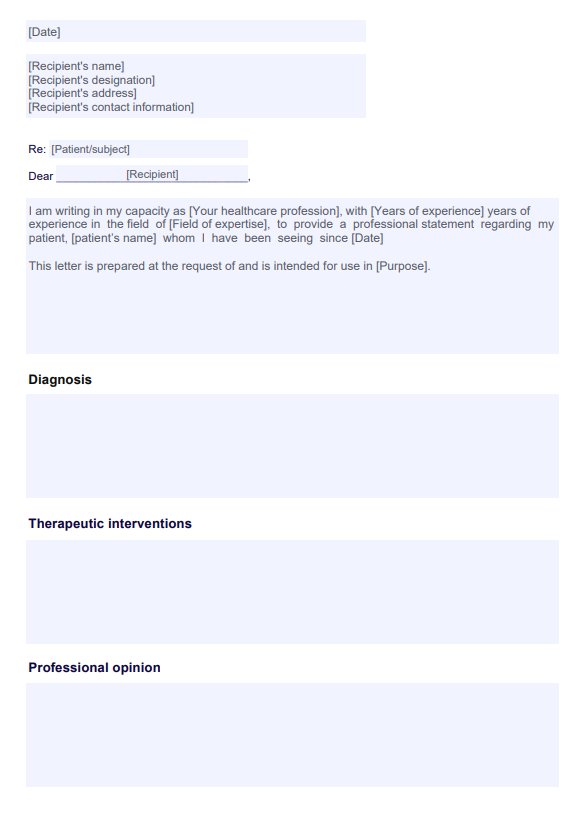To write a therapy letter, outline the client’s mental health status, treatment history, and progress using clear, objective language. Maintain a focus on professional observations and include only information relevant to the legal or clinical purpose.

Therapy Letter for Court
Learn what a Therapy Letter for Court is, HIPAA rules, and how to write one. Download our free template to create a professional letter.
Therapy Letter for Court Template
Commonly asked questions
A client can request a therapy letter directly from their treating therapist, often through a formal written request. In some cases, an attorney or the court may also initiate the request to support legal proceedings.
A therapy letter is a document written by a licensed mental health professional that summarizes a client’s mental health and treatment. It may be used in legal, medical, or workplace settings to provide professional insights into the client’s well-being.
EHR and practice management software
Get started for free
*No credit card required
Free
$0/usd
Unlimited clients
Telehealth
1GB of storage
Client portal text
Automated billing and online payments











